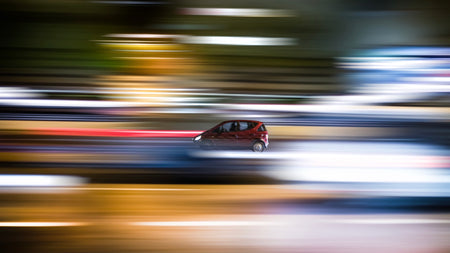Sometimes luck - and what you don't do - can save your life
/
On Saturday afternoon I almost died. Instead I walked away physically unscathed from the most dangerous situation I’ve ever been in. How does one almost die but have no injuries to show for it? I’ll tell you how, by being very lucky.

With the 2nd wave of the coronavirus now under control, we had determined to “get out a bit”. We were on our way to Melrose Arch for lunch, driving in the middle lane on the N1 high way at about 110 km/h. My daughters were in the back and my wife in the passenger seat next to me.
With me driving, Antoinette was the DJ. We had just finished my request – The Closest Thing to Crazy – and she was going to play us one more Katie Melua song before I’m Like a Bird by Nellie Furtado. That was Emma’s request. Its funny how I can remember all those details but very little about what happened during the 60 seconds that followed.
First, I noticed a large black sedan begin to move towards us from the lane to our right. It was a simple case of changing lanes without looking. Something we’ve all done a few times in our lives. But I wasn’t thinking about that. I was – strangely – not thinking much at all. My primal brain did the math and knew that a collision was imminent.
My sense of hearing and of time evaporated. People always say time slows down, and that might sound odd, but you have to feel it to know what it means. And to realize it’s true. I was now the main character of my own bizarre and silent slow-motion movie.
I remember becoming very aware of a few things: A red car right next to us in the left-hand lane, the large space between us and the next car in front and the feeling of my hands on the steering well. My foot lifted off the accelerator and my hands gently turned the steering wheel a little bit to the left. And as our car began to move… contact.
The front left bumper and wheel of their car slammed into the front right bumper and wheel of our car. They told me afterwards that at this point my daughters started screaming, covered their eyes and burst into tears.
But my central nervous system had now exchanged hearing for more important things like the perception of balance (Equilibrioception), sensitivity to gravity and motion (Kinesthesia) and the ability to sense force (Mechanosensation).
Our car was sort of swaying from left to right. And I could feel every part of it. There was no distinction between me and the car. I knew three things. We had somehow avoided contact with the red car to our left, we were fishtailing, and I had limited control.
I remember being especially aware of the dynamics of the movement. Critically, each time the rear skidded in a different direction the magnitude of the movement was decreasing slightly. Once I sensed this gradual return to normal, I opened my mouth and said to my family: “Everything is okay, we are going to be fine.”
I believe two things saved our lives. One was luck and the other was the things I didn’t do. I didn’t turn the steering wheel dramatically in any direction and I didn’t apply break pressure. I’m sure I did something with the steering, but I can’t remember what it was, and I know it wasn’t much.
To add to our luck, our wheel alignment was fine, and we could continue driving. On the way home I used the opportunity to tell my daughters that this sort of thing is exactly why following distance; speed limits and seat belts are important things. But mostly I was just glad to be alive and relieved my family was okay.
